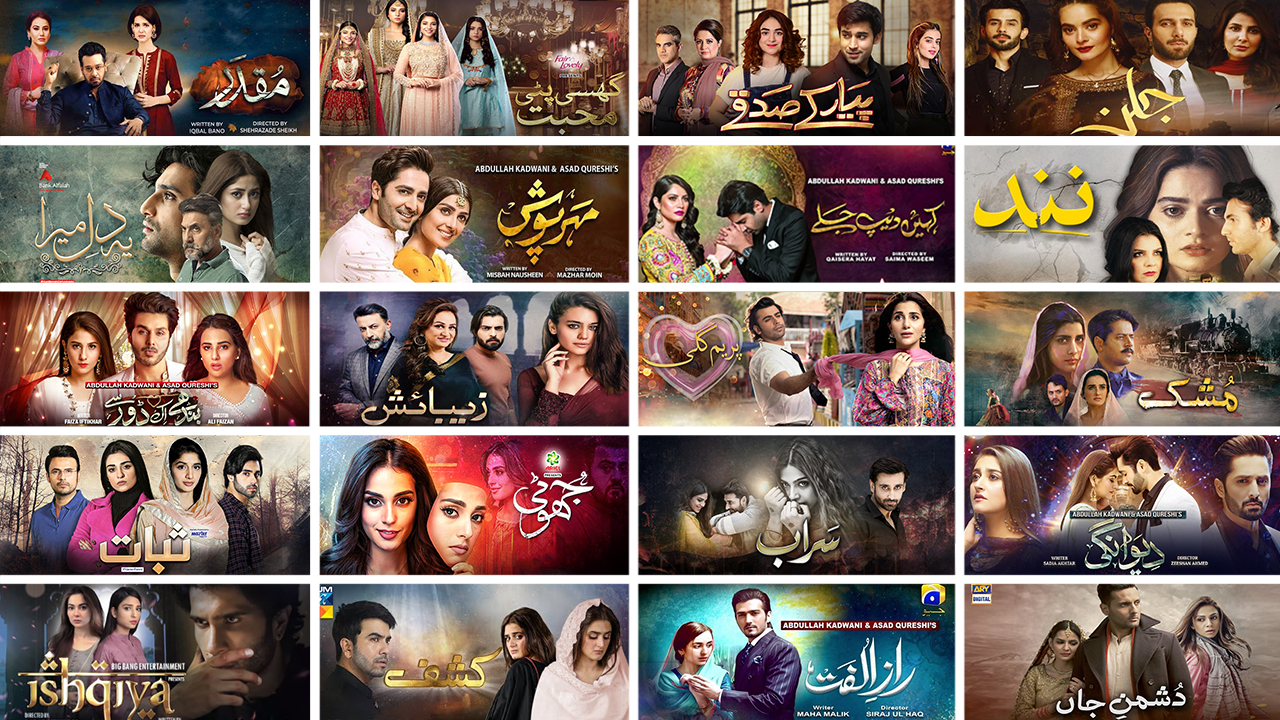Pakistani dramas have a very long history. There were a limited number of genres when Pakistan decided to produce and air dramas. Since Pakistani writers are known for their keen introspection, the Pakistani drama business decided to start with novels specifically for this reason.
Many authors transitioned to writing for television in the years following 1964 (when the first drama was premiered), including Umera Ahmad and Farhat Ishtiaq, who have both produced content for digests and television series. Dramas in Pakistan have now ideally started to address societal and cultural problems that were once forbidden in the initial years.
Today, Pakistani dramas are an integral part of the country’s media landscape and are watched by people of all ages, backgrounds, and regions.
Popular Drama Series
We always look for a better option whenever we consider something. Similarly, we always start with the most well-known dramas when discussing them. So, here are the most popular drama series produced in Pakistan:
- Raqs-e-Bismil
- Parizaad
- Mere pas tum ho
- Alif
- Taiwan
- Inkaar
- Ehd e Wafa
- Do bol
- Ranjha ranjha kardi
- Ishq the naseeb
- Suno Chanda
- Hum Tum
The Cultural Impact of Pakistani Dramas
Pakistani dramas significantly reflect cultural values. Moreover, they also address social issues such as gender roles, marriage, family dynamics, and class differences in a peculiar way. However, there are some terrible impacts as well.
You might believe you are strong enough to withstand the fire of Pakistani dramas. Anyhow, some things shown in the theatres affect our minds in ways that we aren’t even aware of. People emulate their actions and dress in the same way that actors do. For instance, female characters from the elite class usually wear jeans and tops in Pakistani dramas. They are not concerned about religion, ethics, or cultural norms.
The Role of Music in Pakistani Dramas
Music has significant significance on our minds as it nourishes our souls; in Pakistani dramas, OSTs serve this purpose. Now, whether OSTs add any value to Pakistani dramas or not. The answer is definitely yes.
The OSTs are essential from both a marketing and aesthetic point of view because the title track attracts a larger audience, which supports and highlights the intent of the individual drama serial. The music and lyrics of the title songs significantly help to set the mood, express emotions, and add depth to the characters and the storyline.
The Portrayal of Women in Pakistani Dramas
We cannot ignore the reality that Pakistani dramas have an extraordinary impact on our lives. Men and women are seen as wheels of the same wagon in the modern world.
However, the way women are portrayed is never equal. The main focus of the dramas is the rising divorce rate and how easily couples get divorced even when they haven’t sinned or done anything wrong.
Even though it is evident that women are making more significant strides in society today, having a daughter is still viewed as a sin. Women’s rights are depicted in dramas as wholly ignored; for instance, when they express a wish for a love marriage, it is viewed as a severe offence, and they are abused even then.
Last but not least, many Pakistani dramas portray women as nothing but gold diggers and homebreakers.
The Representation of Pakistani Culture in Dramas
Pakistani dramas accurately reflect the country’s complex social dynamics and cultural values. The theatres highlight the country’s rich cultural traditions and values, including undying respect for religion, family, loyalty, and honour. Moreover, Pakistani dramas also show the daily life struggles of commoners, giving an insight into the country’s diverse economic and social structure.
Some critics have argued that Pakistani dramas can be overly traditional and conservative, exhibiting rigid gender roles and perpetuating negative stereotypes. We can not deny it since many Pakistani dramas follow this pattern.

